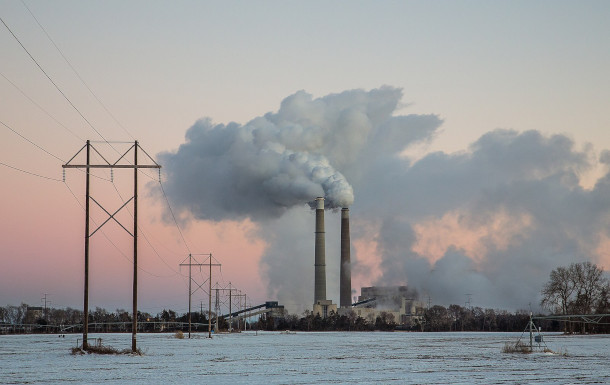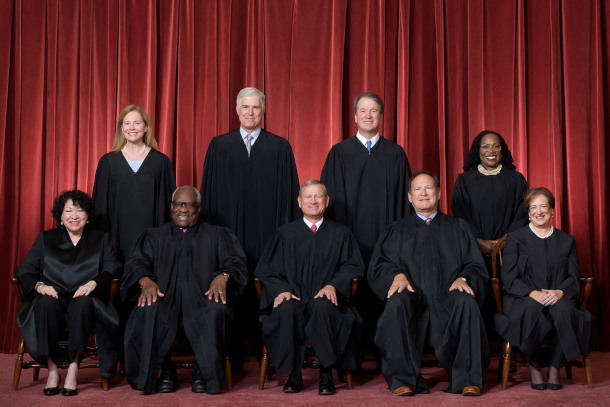No Early Intervention of EPA Rule
Air Date: Week of October 25, 2024

The EPA’s new regulation would require coal power plants to reduce their emissions by 90% by 2032 if they want to remain operational in 2038. (Photo: Tony Webster, Wikimedia Commons, CC BY-SA 2.0)
The U.S. Supreme Court denied an emergency motion from industry to block an EPA rule that compels a 90% reduction in carbon emissions by 2032 for some coal and gas power plants. It will now be up to the U.S. Court of Appeals for the DC Circuit to decide first about the rule and its requirement for carbon capture and storage.
Transcript
DOERING: After the break, the promise of clean, renewable energy from deep underground. But first, a note on environmental news from the highest court in the land. On October 16th, the U.S. Supreme Court allowed an EPA emissions rule to remain in place, for now. The regulation compels existing coal-fired power plants and new gas-fired plants to use carbon capture and storage to reduce their carbon emissions by 90% by 2032 if they want to remain operational after 2038. EPA says that over the next two decades, this rule would save as much carbon pollution as taking 328 million gas-powered cars off the road every year. Fossil fuel companies have thrown their weight behind carbon capture and storage, but now that EPA wants to require it; the industry appears to be backpedaling.

The U.S. Supreme Court did not grant the plaintiffs in the case against the EPA’s latest emission regulation an emergency block on the regulation. The matter will be considered by the U.S. Court of Appeals for the DC Circuit before any possible review by the Supreme Court. (Photo: Fred Schilling, Collection of the Supreme Court of the United States, supremecourt.gov, public domain)
A group of states, energy companies and industry organizations filed a set of emergency motions arguing that the rule would cause irreparable harm to the power industry and reduce grid reliability. In a brief statement, Justices Brett Kavanaugh and Neil Gorsuch expressed sympathy for the plaintiffs’ case, but said that due to the regulation's long timeline, there was no urgent need to block it. So now it’ll be up to the U.S. Court of Appeals for the DC Circuit to decide the fate of the rule and its carbon capture requirement, starting with a December 6th court date. Just in time for the outgoing Biden administration to present its arguments before a new President takes office.
Links
Living on Earth wants to hear from you!
Living on Earth
62 Calef Highway, Suite 212
Lee, NH 03861
Telephone: 617-287-4121
E-mail: comments@loe.org
Newsletter [Click here]
Donate to Living on Earth!
Living on Earth is an independent media program and relies entirely on contributions from listeners and institutions supporting public service. Please donate now to preserve an independent environmental voice.
NewsletterLiving on Earth offers a weekly delivery of the show's rundown to your mailbox. Sign up for our newsletter today!
 Sailors For The Sea: Be the change you want to sea.
Sailors For The Sea: Be the change you want to sea.
 The Grantham Foundation for the Protection of the Environment: Committed to protecting and improving the health of the global environment.
The Grantham Foundation for the Protection of the Environment: Committed to protecting and improving the health of the global environment.
 Contribute to Living on Earth and receive, as our gift to you, an archival print of one of Mark Seth Lender's extraordinary wildlife photographs. Follow the link to see Mark's current collection of photographs.
Contribute to Living on Earth and receive, as our gift to you, an archival print of one of Mark Seth Lender's extraordinary wildlife photographs. Follow the link to see Mark's current collection of photographs.
 Buy a signed copy of Mark Seth Lender's book Smeagull the Seagull & support Living on Earth
Buy a signed copy of Mark Seth Lender's book Smeagull the Seagull & support Living on Earth

